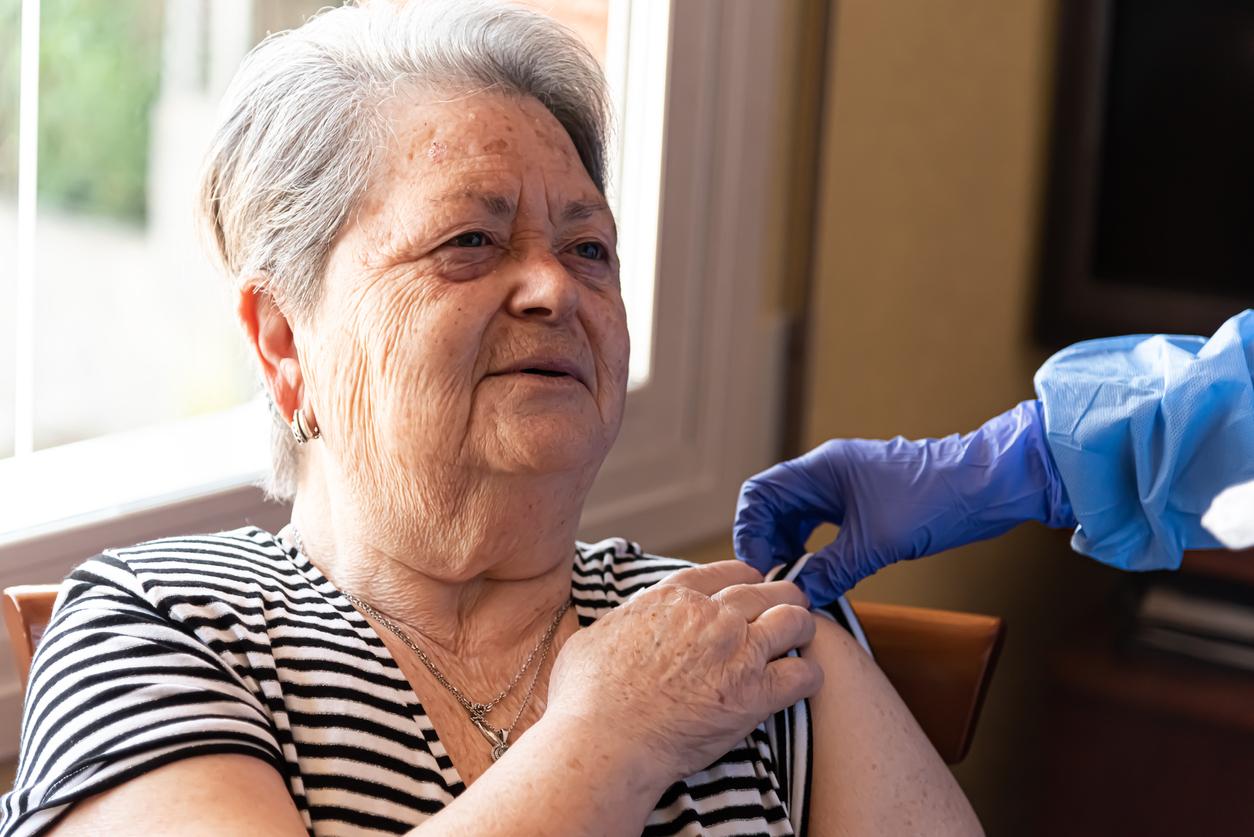Vaccine advisers to the Centers for Disease Control and Prevention (CDC) today recommended that people ages 65 and older receive an additional dose of the current monovalent (single-strain) COVID-19 vaccine this spring.
The vote from the Advisory Committee on Immunization (ACIP) targets a group at higher risk for COVID-19 hospitalization and death. Immunity is known to wane following vaccination as well as infection, and it's been almost 6 months since the CDC weighed in with its last advice, which was that people ages 6 months and older receive the updated COVID vaccine targeting the XBB.1.5 variant.
Though COVID activity is currently trending downward in the United States, experts said it's likely that virus circulation will likely continue at significant levels in the months ahead. ACIP made similar spring booster recommendations in 2022 and 2023.
Like previous recommendations, the next dose would be given at least 4 months after the last dose. People with conditions that compromise their immune system could get their next dose at least 2 months after the last dose.
Michael T. Osterholm, PhD, MPH, director of the Center for Infectious Disease Research and Policy (CIDRAP) at the University of Minnesota, said ACIP took a very important step today and though it's not yet clear what the latest advice is for the broader group of immunocompromised people, today's recommendation for people ages 65 and older still covers the biggest chunk of the at-risk group. CIDRAP publishes CIDRAP News.
In its data for the first weeks of February, the CDC reported more than 1,000 COVID deaths per week, and Osterholm said most of them are likely in seniors. He said predicting what lies ahead with COVID is more challenging and nuanced than flu, because SARS-CoV-2 variants change more often and COVID peaks—nine of them so far—have been tied to the emergence of new variants.
Debate over 'may' versus 'should'
Ahead of today's discussion, the CDC's COVID vaccine work group crafted the wording for the recommendation originally presented to the group today, which said seniors may get another dose of the vaccine. However, during working group discussions, some members preferred going with a stronger "should receive an additional dose" wording for the recommendations.
During deliberations, some ACIP members and ex officio members said they supported a stronger "should" wording, mainly to portray a clearer message to vaccine recipients and make the decision easier for healthcare providers to navigate. For example, some ACIP members noted that a large portion of COVID vaccination takes place in pharmacies, where pharmacists don't have complete information about a patient's health status.
Other members, however, raised concerns that the wording might discourage or have a chilling effect on people who hadn't received a COVID vaccine dose in the fall. Others thought the evidence supporting another vaccine dose wasn't strong enough for a more emphatic "should" recommendation.
Several members and observers who spoke today acknowledged that COVID activity isn't following a seasonal pattern like flu and that COVID levels are likely to wax and wane in the months ahead.
Matthew Daley, MD, ACIP member and senior investigator with the Institute for Health Research at Kaiser Permanente Colorado, said, "There is disease out there that is preventable."
There is disease out there that is preventable.
ACIP members approved an amendment to switch the voting measure wording to the stronger recommendation, and the final measure passed with 11 yes votes, 1 no vote, and 1 abstention.
Following ACIP's action, CDC Director Mandy Cohen, MD, MPH, endorsed the group's recommendation and noted that the CDC's earlier recommendations say immunocompromised groups are already eligible for an additional dose of COVID vaccine.
Looking ahead to a fall recommendation
In related discussions today, the group discussed the pros and cons of making its next recommendation for the fall in June rather than waiting for September, as it did for its 2023-24 recommendation.
The Food and Drug Administration's vaccine advisory group—the Vaccines and Related Biological Products Advisory Committee (VRBPAC)-- is expected make a recommendation for the strain or strains to include in COVID vaccines for the 2024-25 respiratory virus season on May 16.
Laying out a possible timeline for the next recommendation, CDC experts noted the pros and cons of making a policy decision in June.
For example, on one hand, making a recommendation in early summer would help with early planning across the healthcare delivery system and allow more time for communicating the recommendations. But on the other hand, members might be faced with major changes in COVID epidemiology or strains that might require emergency action.
Note: This story was modified after publication to include the CDC director's endorsement of ACIP's recommendations.



















